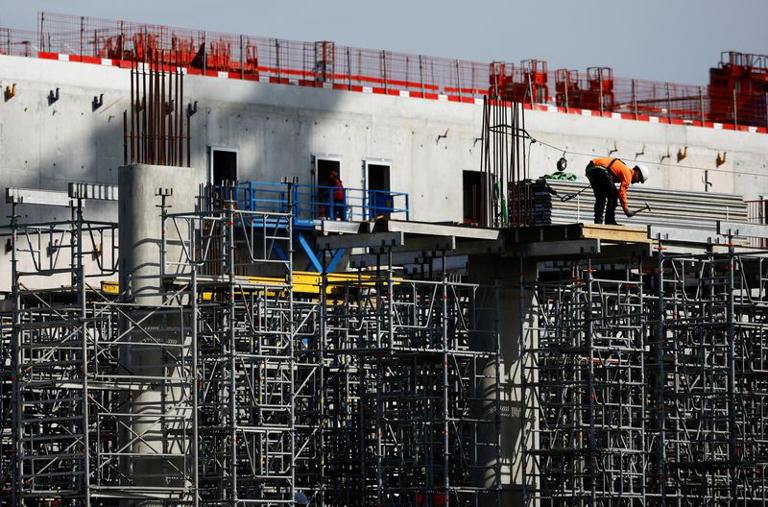In the second quarter of 2024, France’s economy demonstrated a modest but encouraging growth rate that exceeded initial expectations, driven largely by a notable boost in exports. This performance comes amidst a backdrop of stagnant consumer spending and political turbulence. The growth was primarily attributed to the delivery of the Utopia of the Seas, a major cruise ship, which significantly contributed to the expansion of exports and mitigated the flat domestic consumption that had previously been a major driver of economic activity.
According to preliminary figures from France’s national statistics office, INSEE, the country’s GDP grew by 0.3% from April to June. This growth rate mirrors the revised figure for the previous quarter and surpasses the 0.2% growth predicted by economists surveyed by Reuters. The better-than-expected growth is a notable relief for the government, which has faced criticism for recently revising its 2024 growth forecast downwards from 1.4% to 1%, alongside increasing its budget deficit projections.
Finance Minister Bruno Le Maire expressed cautious optimism about the economic outlook, suggesting that the actual growth might exceed the revised forecast of 1% for the year. He attributed this positive outcome to the efficacy of France’s economic policies, stating, “For two years, France has outperformed; our economic policies work and are giving tangible results.” Le Maire also indicated that the stronger-than-anticipated growth could have a favorable impact on the nation’s budget deficit, though he stressed the need for continued fiscal discipline to manage spending effectively.
Despite this positive economic news, France is navigating a period of significant political uncertainty. A snap parliamentary election held in June resulted in a hung parliament, leaving the country in a state of political impasse. This uncertainty has affected business confidence, with the left-wing alliance emerging as the largest party in the election and advocating for substantial changes in economic policy, including a new tax and spending agenda.
On the domestic front, consumer spending—the traditional engine of French economic growth—remained flat during the second quarter. This stagnation was counterbalanced by a rise in business investment and a 0.6% increase in public investment. Additionally, the trade sector provided a boost to GDP, with exports rising by 0.6% thanks to the delivery of the Utopia of the Seas. Imports, however, remained stagnant, contributing to a net positive impact on the economy.
Looking forward, INSEE has forecasted that economic activity will likely increase to 0.5% in the third quarter, driven by the ongoing Olympic Games. This event is anticipated to provide a significant boost to economic activity, benefiting various sectors and contributing positively to France’s overall economic performance.
Overall, while France faces ongoing political challenges and a need for fiscal prudence, the stronger-than-expected economic growth in the second quarter offers a positive sign for the country’s economic trajectory in 2024. The combination of favorable export performance and anticipated boosts from the Olympic Games could provide additional momentum for the French economy as it navigates the remainder of the year.
